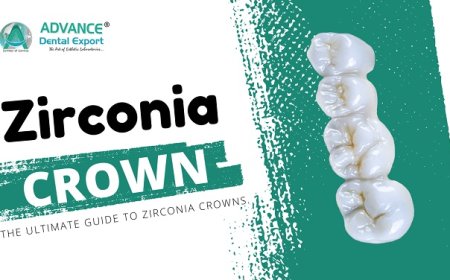Does Florida Have an Inheritance Tax?

When planning for the future and securing a legacy for loved ones, understanding tax implications is crucial. If you live in Florida or have family there, you might wonder whether the state imposes an inheritance tax. In this blog, well clarify Floridas inheritance tax laws, address common misconceptions, and offer insights for smarter estate planning.
The Florida Tax Environment: What You Should Know
1. No Inheritance Tax in Florida
One of the biggest advantages of living in Florida is the absence of an inheritance tax. While many states impose taxes on inherited assets, Florida doesnt have this tax at the state level. That means that beneficiaries in Florida typically wont have to worry about paying inheritance taxes on what they inherit from a loved one.
2. Estate Tax Laws in Florida
While Florida doesnt levy an inheritance tax, its essential to understand the difference between inheritance tax and estate tax. Estate tax applies to the value of a persons estate before its distributed to heirs.
Good news for Floridians: Florida abolished its estate tax in 2005, which was also known as the "sponge tax." This tax used to apply to estates valued above a certain threshold, but it is no longer in effect. So, Florida residents dont have to worry about estate taxes within the state.
Clearing Up Common Misconceptions
1. Out-of-State Inheritance Taxes
Though Florida doesnt have an inheritance tax, heirs who inherit property or assets from relatives in other states may still be subject to that states inheritance tax. Each state has its own tax rules, so its important to consider the tax laws in the state where the deceased person lived.
2. Federal Estate Tax Limits
Even though Florida doesnt have an estate tax, its important to note that federal estate tax rules still apply across the country. The federal estate tax only affects estates valued above $11.7 million as of 2021. For most people, their estates will fall below this threshold, meaning the federal estate tax wont be a concern. This is good news for many Floridians, as it means that federal estate tax is not something they need to worry about.
3. Myth: Double Taxation on Inherited Assets
A common concern among beneficiaries is the idea of double taxation on inherited assets. In Florida, this isnt an issue. Since Florida doesnt have an inheritance tax, assets that pass to heirs arent taxed again after being inherited. While the estate itself may have been subject to taxes, beneficiaries generally dont face additional taxes on the assets they receive.
4. Probate Fees and Costs
Probatethe legal process of distributing a deceased persons assetscan be confusing, especially when it comes to fees and costs. In Florida, the probate process is designed to ensure that assets are distributed according to the decedent's will or state laws. While probate fees do apply, they are generally lower in Florida compared to many other states, and with proper estate planning, you can minimize or even avoid these costs.
Smart Estate Planning Strategies in Florida
1. Using Trusts to Protect Assets
Trusts are an important estate planning tool in Florida. They can offer benefits like asset protection, privacy, and the ability to bypass the lengthy probate process. Floridians can use various types of trusts, such as living trusts, irrevocable trusts, or special needs trusts, depending on their goals. Trusts can help protect assets from creditors, reduce estate taxes, and streamline the transfer of assets to heirs.
2. Maximizing the Florida Homestead Exemption
Homeownership in Florida comes with significant tax advantages, especially through the Florida Homestead Exemption. This exemption can reduce property taxes and protect your home from creditors. To qualify, the property must be your primary residence, and youll need to meet specific size and usage criteria. By taking advantage of the homestead exemption, you can lower your property tax burden and ensure that your home is protected for future generations.
3. Understanding Gift Tax Exclusions
While Florida doesnt impose a gift tax, there are still federal gift tax rules to consider. Individuals can gift up to $15,000 per recipient per year (as of 2021) without triggering gift tax liability. This allows you to transfer assets to family members and reduce the taxable value of your estate over time. Its a smart way to gradually pass wealth on to your loved ones while minimizing the tax impact.
4. Consulting with an Experienced Estate Planning Attorney
When it comes to estate planning, seeking professional advice is always a good idea. An estate planning attorney can help you navigate Floridas tax landscape, create a strategy tailored to your goals, and ensure that your estate plan is designed to protect your assets and reduce tax obligations. Whether youre creating an estate plan for the first time or updating an existing one, an attorney specializing in Florida tax law can provide invaluable guidance.
Conclusion: Navigating Floridas Inheritance Tax Landscape with Confidence
In summary, Floridas lack of an inheritance or estate tax provides significant advantages for residents when it comes to estate planning. While federal estate tax laws still apply, most estates are unlikely to reach the federal threshold, so tax concerns are minimal for most Floridians.
By leveraging tools like trusts, the homestead exemption, and gift tax exclusions, you can safeguard your assets, reduce potential taxes, and pass on wealth to future generations. And when in doubt, working with an experienced estate planning attorney can help you create a comprehensive plan that ensures your wishes are honored.
At the Law Office of Mary King, FL, we specialize in guiding Floridians through the intricacies of estate planning, tax law, and asset protection. Whether youre starting from scratch or looking to update your estate plan, were here to help you make informed decisions and secure a prosperous future for you and your loved ones.






























